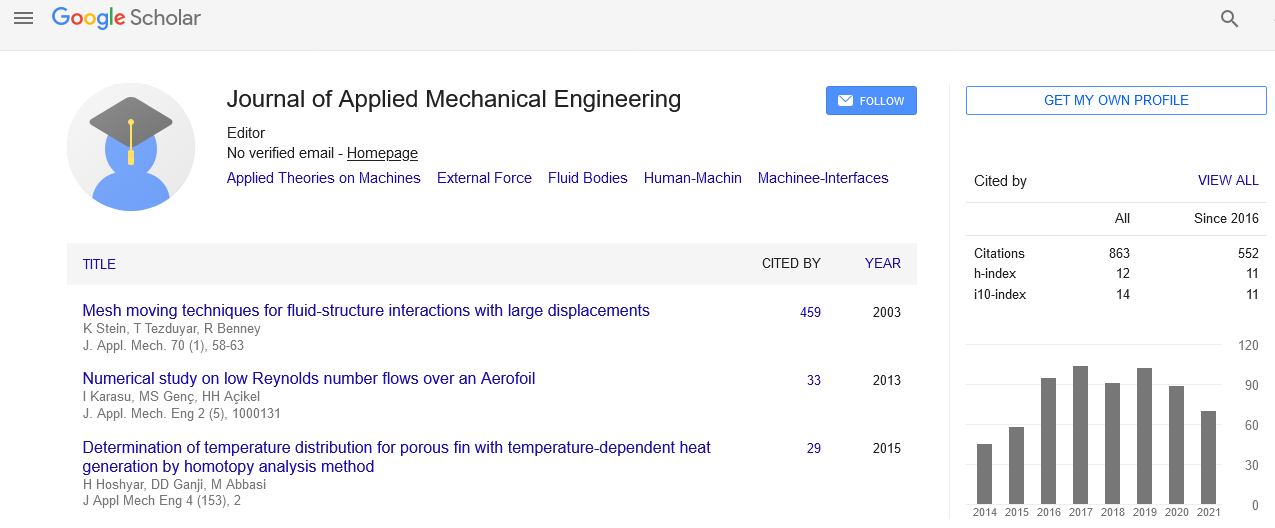Indexed In
- Genamics JournalSeek
- JournalTOCs
- CiteFactor
- RefSeek
- Hamdard University
- EBSCO A-Z
- OCLC- WorldCat
- Publons
- Google Scholar
Useful Links
Share This Page
Journal Flyer

Open Access Journals
- Agri and Aquaculture
- Biochemistry
- Bioinformatics & Systems Biology
- Business & Management
- Chemistry
- Clinical Sciences
- Engineering
- Food & Nutrition
- General Science
- Genetics & Molecular Biology
- Immunology & Microbiology
- Medical Sciences
- Neuroscience & Psychology
- Nursing & Health Care
- Pharmaceutical Sciences
Propeller design - Software implementation and application of analytical and numerical tools for propeller design and shape optimization
4th International Conference and Exhibition on Mechanical & Aerospace Engineering
October 03-04, 2016 Orlando, USA
Felix Christopher Frischmann
Technische Universitaet Muenchen, Germany
Scientific Tracks Abstracts: J Appl Mech Eng
Abstract:
Propeller design and shape optimization (Propeller Design) is a crucial task for propeller-based aircrafts and vehicles concerning their performance, efficiency and usability. For many use cases propeller-based aircrafts have proven to be reliable and costefficient. The geometric shape and topology of the propeller is a crucial design variable for such aircrafts. Various numerical tools like Finite Element Analysis (FEA) and Fluid Simulations as well as their coupled interaction Fluid-Solid-Interaction (FSI) can be used to predict the propeller performance and optimize its shape with respect to power, performance and structural stability. Another approach for propeller theory to calculate the static condition is based on empirical data models and the lifting-line theory or vortex theory. This method is almost purely analytical and utilizes the Biot-Savart law and Kutta-Joukowski theorem. Thus, allows a fast and efficient execution of propeller optimization tasks with little computational resources, because no computationally expensive equations like Navier-Stokes need to be solved. The author will present a software implementation of this vortex theory for propeller design and optimization based on PROP_DESIGN. Furthermore, the integration of such methods in the mechanical engineering product design and production workflow will be presented. The necessary interaction and interfaces with CAD, CAM and CAE tools, also including the interaction with numerical methods like FEA/FSI for propeller cold shape design are demonstrated. The utilization of machine learning algorithms within an industrially applicable design workflow will be discussed and demonstrated.
Biography :
Felix Christopher Frischmann has completed his Master’s program in Computational Mechanics (MSc) at Technische Universität Munchen (TUM). Since 2011, he is a Research Assistant and PhD student at TUM in the field of Computational Mechanics with focus on FEM mesh generation, pre-processing, CAD clean-up and designthrough- analysis. Since 2012, he is also working as a freelancer and independent software developer in the field of numerical methods and pre-processing for numerical simulations.

